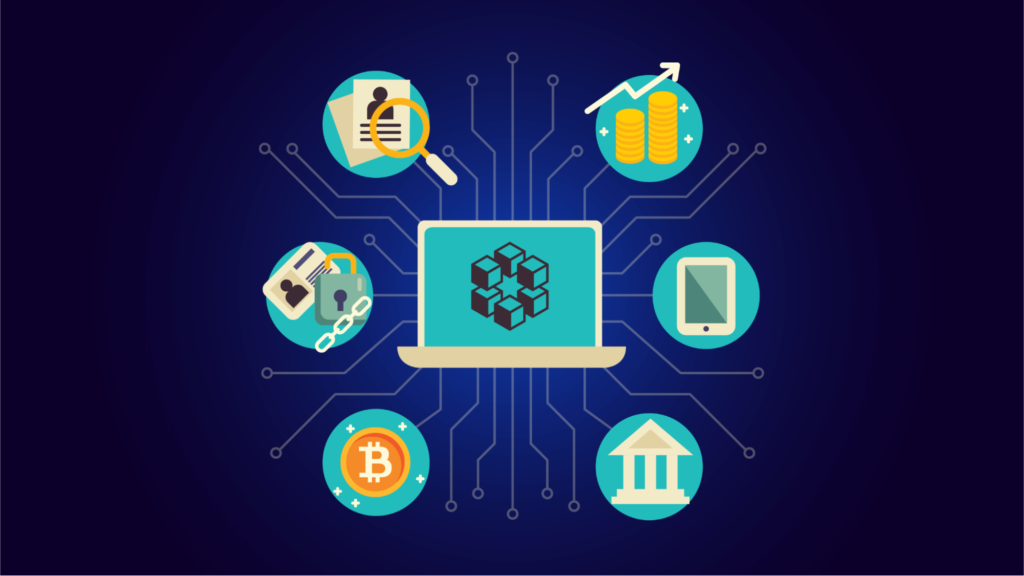Recently, blockchain development has grown in favor of programmers and businesses looking to increase transparency, uphold security, and speed up procedures. Nevertheless, a lot of people get the technology’s application cases, implementation requirements, and practical benefits wrong. Blockchain development is the process of establishing a distributed ledger technology (DLT) that is shareable, immutable, and securely maintains assets and records transactions.
What Exactly Is a Blockchain?
All bitcoin transactions across all peer-to-peer networks are recorded on a blockchain, which is an electronic ledger. And unlike other old transactional techniques that are centralized and under the jurisdiction of certain governments and organizations, blockchain technology is decentralized and open source. Yet since this blockchain is decentralized, it is not under the jurisdiction of a single organization or party.
Since blockchain technology enables companies to perform safe transactions without engaging third parties, more firms worldwide may profit from this technology. Blockchains are decentralized ledgers that are publicly accessible that are maintained by network nodes. The blockchain is continuously updated and maintained by each node in the network. Since it is impossible to alter data after it has been recorded on the blockchain, blockchain technology is particularly well recognized for its security. If you are far from all these understandings, then it is better to turn to blockchain development services so as not to make mistakes.
What Exactly Is Blockchain Development?

Designing, sustaining, and building blockchain systems and applications are all part of the blockchain development process. Ultimately, it aims to harness the special qualities of blockchain technology to address issues and open doors.
The smart contract is a particularly cutting-edge implementation of blockchain technology. Smart contracts, like traditional contracts, are agreements between two parties that are put in writing. To be sure, smart contracts are just computer codes stored on a blockchain, much like traditional contracts. Only when both parties abide by the criteria set out in the agreement are these programs set to operate. Its automated compliance provides real-time assurance of precise contract execution.
Advantages of Using Blockchain Technologies
Using corporate blockchain solutions may provide the following advantages for businesses and the freelance developers that work for them:
Higher Transparency
The network must verify transactions as they happen, which means that everyone involved must concur that the data associated with the transaction, notably the hash, is accurate and, as a result, the transaction is legitimate. All network participants may therefore see the whole history of each transaction inside the distributed ledger. The information is always correct, secure, and visible to every member since every change to one record affects all subsequent records.
Lower Likelihood Of Fraud

The transactional history of any business may be complex, especially if an item is traded or sold regularly or moves around a lot. Because all of the information is stored on a blockchain, you have immediate access to a thorough audit trail that provides insight into an asset’s past. The blockchain’s prior, unalterable records of transactions deter fraud and confirm legitimacy.
Increased Efficiency And Speed
You’re probably squandering valuable time that you might be using to complete higher-value activities if you’re still handling transactional data manually (e.g., using paper documents, spreadsheets, or third-party solutions). These archaic procedures are prone to mistakes and need time-consuming duplicating work to assure correctness. By streamlining and automating the process, blockchain eliminates workflow bottlenecks and makes sure that everyone is utilizing the same, up-to-date ledger.
Reduced Expenses
Cutting down on wasteful spending may accelerate growth and improve your bottom line. Without compromising accuracy and trust, blockchain removes the need for additional third-party middlemen. By reaching a consensus, network users check everything, saving you the time it would take to carefully go through trade paperwork.
Conclusion
The creation of a blockchain involves a lot of work and commitment. Creativity is required to convert concepts into code. To securely record transactions and manage assets, distributed ledger technology (DLT) is being developed via the blockchain method. After you have grasped the fundamental concepts, you may concentrate on a specific area of blockchain technology.